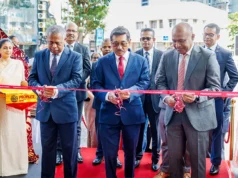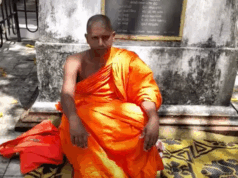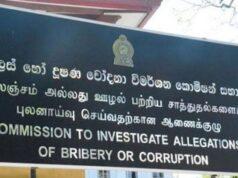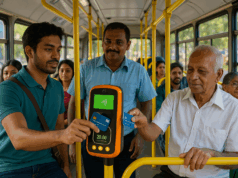In this article, I introduce an idea which is simple to implement but is powerful and helps with building technical skills, strengthening the country brand and creating international opportunities for Sri Lankans. Furthermore, it can diversify and extend the country’s tourism revenue streams.
The simple idea is to introduce a hassle-free visa for Internships, Volunteering, Expert Exchange Programs and Short-term Studies. For brevity, let me call it a Knowledge Transfer Visa or KTV. There are three important clarifications to make up-front. Firstly, this visa is not for those seeking paid employment in Sri Lanka. Secondly, the local partner needs to ensure that if any local permits or permissions are applicable, these are in place and cover any KTV holders. Thirdly, it is not a resident’s visa and tourist rates will have to be paid by KTV holders for their sightseeing.
It is also important to spell out up-front a critical requirement for success. This is that an applicant from a country who is entitled to obtain an online tourist visa quickly and easily should be able to obtain a KTV with the same ease and convenience. It would be reasonable for the Department of Immigration to have an additional information box in the visa application to ask for the name and contact details of the local partner (corporate or individual). But it should not be the role of the visa issuing officer in a Sri Lankan foreign mission or the Department of Immigration to examine paperwork to assess the credentials of the visitor and the local partner. This should be left to the applicant and local partner to assess each other. By analogy, a tourist is not asked to demonstrate that the hotel they have booked into is validly registered as a tourism business. Nor does the visa issuing process ask the hotel if they have vetted the tourist’s ability to pay. If the KTV is kept as simple as an online tourist visa, it will succeed, otherwise it will fail to deliver the potential benefits.
A reader may ask why this sort of visa is needed. The answer is that Sri Lanka is well positioned to benefit from activities covered in a knowledge transfer visa. However, such visits will only materialise if foreign nationals are reassured that they can arrive for such purposes with a visa where the purpose of their visit is explicitly recognised and they are confident that their visit is welcomed. Visitors on a KTV will bring in hard currency revenues in much the same way as ordinary tourists but importantly lead to other benefits such as the import of expertise, building international networks for local corporates and individuals and being potential repeat visitors. Let me explain by running through the various strands.
Internships
With the first strand, Internships, there is an overt intention that people want to work in a very structured manner and obtain useful work experience to help obtain paid employment back in their home country. Sri Lanka for various reasons, wishes to have tight controls over foreign workers and to limit foreign nationals on work visas. It is important to point out that facilitating internships need not conflict with this thinking. Incoming foreign interns are different to full-time foreign workers and caters to a younger demographic looking for a short period of work experience. If Sri Lanka restricts foreign internships to unpaid internships, this will limit the candidate pool to those interns who have parental financial support. Nevertheless, this is still a start and better than not opening the door at all.
In many sectors, Sri Lanka can offer meaningful summer internships of up to 3 months or longer. Two obvious examples are Tourism and Information Technology (IT). Sri Lankan companies cannot run viable business models by relying on a supply of foreign interns. Therefore, foreign interns do not in any way threaten the prospects for locals for employment. On the contrary, foreign interns from developed economies can benefit locals working with them in various ways. These could include improving language skills, and locals gaining exposure to skills such as time-management and project planning. Internships can also be used for foreign students to engage in undergraduate and postgraduate university projects with local academics.
To explain how foreign interns can be very useful, let me construct an example. It is a fact that Sri Lankan companies are writing the software for some of the most technologically advanced companies in the world. Imagine Sri Lankan IT companies actively pitch this to foreign universities in advanced economies and foreign undergraduates take up internships in Sri Lanka. Not only do they gain work experience of an equivalent standard to working in London or New York, but they will have a more exciting time in a tropical country. When they graduate, they will take up jobs in London, New York or wherever. When their employers are looking to outsource work, they may recommend the companies they worked with in Sri Lanka. Some of these foreign interns may even start their own companies in the future and look to outsource work to the Sri Lankan companies they worked with. If the new start-ups do well, there may be frequent business visits. When their former interns start families, they will visit Sri Lanka on visits which combine business meetings with a family holiday. Their children in turn will grow up with Sri Lanka being a place that was a regular holiday destination and, in the future, bring their own children on holiday. Internships in Sri Lanka to foreign students can grow future business revenues and also create a multi-generation chain of tourists.
Some foreign interns can also work in a three-way collaboration between their university, a local university and a private sector company. Take for example, a hotel that has placed camera traps on its property to study wildlife. If they do it on their own, it may simply be for marketing the hotel. If they can partner with a local academic or conservation NGO, it could be elevated into a formal study, perhaps even a long-term study. For both the local academic and the hotel, it would be useful if any work they do is part of a long-term study with a foreign university. International collaborations like this are also more useful to the hotel in their efforts for international publicity. For the local academic or conservation NGO, the international collaboration could also open opportunities for funding and recognition and invitations to present in international conferences. A win for all.
If Sri Lanka companies open up to foreign interns, it may result in them realising the value of well-structured internship programs and the dialogue with overseas interns and their academic supervisors may lead to good internship programs being set up for both local and foreign applicants. This can only help young resident Sri Lankans who at present are frustrated by the paucity of structured internship programs even amongst Sri Lanka’s leading companies.
Before I continue to the next two strands, it is useful to reiterate why a knowledge transfer visa is important. The above-mentioned benefits can only arise if potential foreign interns and volunteers have a mechanism of a special visa to reassure them that the purpose of their visit is properly disclosed and that their activity in Sri Lanka is welcomed and completely above-board within the stated purpose of the visa.
The same will apply, with voluntourism, which is a form of commercial tourism activity. Overseas companies that have a business model of arranging voluntourism abroad are more likely to add Sri Lanka as a destination if a KTV existed.
Volunteering
The second strand is Volunteering and here I define it narrowly to cases where a volunteer is not volunteering to build out their CV to help them gain paid employment in their home country. If they are doing so, it is covered under the Internship category. Under this definition, volunteers are people who fall into two broad categories. They may be volunteering for recreational purposes, coupled with wanting to do something that is societally useful. Or they may be people who are retired and on a comfortable retirement income who now have time and money to give something back to society. For example, a person in a highly paid job may come and volunteer for two weeks on a science (e.g. biodiversity surveys) or an arts project (e.g. cataloguing temple art). They may do this because they enjoy doing something different from their day job which is related to their personal interests and societally useful. This type of volunteering has become a significant form of tourism, known as voluntourism.
For the second type of volunteering an example would be a retired wildlife reserve manager from overseas who is happy to work for free with a Sri Lankan hotel or game lodge to train guides and provide practical help in rewilding the grounds of the property. They may enjoy mentoring and want to share their experience with others who are happy to learn from them. To take another example, it could be a retired museum curator who is happy to volunteer at a government museum to train local staff and inject fresh thinking into how exhibitions are curated.
The host country receives free expertise and valuable time from such volunteers. The volunteers are also paying tourists.
In G20 countries, volunteering is highly organised and has resulted in businesses that provide on-line platforms to match volunteers with recipient organisations. Sri Lanka can benefit from making it easy for people to volunteer and to come over, whether it is to paint hospital wards, help in beach clean-ups, or to help at a literary, music or cultural festival or to train local wildlife guides. Many volunteers will also look to add on a holiday extension to their volunteering stay. It is not just free people-hours of work and spending as foreign visitors: Carefully chosen good volunteers also bring in ideas, know-how, enthusiasm and energy.
Expert Exchange
The third strand in the knowledge transfer visa is for Expert Exchange. This is for people who are established in their discipline and looking to diversify their experience and build an international network by engaging in short term unpaid assignments overseas. For example, let’s assume a senior academic would like to spend a month working with local counterparts. Perhaps it is someone from a Management Science faculty who is interested in South Asian trade and wishes to work with local counterparts in a Sri Lankan professional institution or the Management Science faculty of a university. Or, perhaps it is an academic with an interest in contemporary Asian art. In such situations, a mutually useful arrangement between the foreign visitor and any local counterparts would be for the visitor to be provided a desk and some working space in the local faculty. Perhaps the visiting academic or professional can even undertake to give a certain number of lectures to Sri Lankan students. Relationships established in this way could lead to reciprocal invitations for Sri Lankan academics to attend foreign conferences and workshops and possibly help with Sri Lankan students receiving guidance and support with doing a PhD overseas. The visiting academic or expert is not being paid by the local partners in Sri Lanka and will continue to be on the payroll of their employer in their home country. Again, such visitors need to be reassured that what they are doing is deemed above -board and welcomed. They would not wish to come to Sri Lanka on a standard tourist visa for an engagement of this kind.
Short-term Study
The final strand of the knowledge transfer visa is for Short-term Study. Sri Lanka already has the skilled teachers and education infrastructure to offer undergraduate degrees from several foreign universities. It also runs accredited courses for professional qualifications from organisations that are based in G20 countries, whether it is in Accountancy or Marketing or IT. This capability can be expanded to provide ‘summer schools’ where foreign students arrive for a combination of classroom and field teaching. Local educational institutions can use their business initiative to develop curricula in consultation with foreign universities to meet the coursework credit requirements. If it is simple and easy to obtain a visa to attend such a course in Sri Lanka, this becomes a tempting offer for foreign students. In areas spanning from medicine, tourism, and the biological sciences, Sri Lanka can become an exciting destination for classroom and field work.
Conclusion
The results won’t be seen immediately as it takes years for local counterparts and foreign counterparts to respond and adapt to the benefits of such a visa. But slowly and steadily, we will see benefits accruing to the country. We also need to keep in mind that with anything that involves people, sometimes things don’t work out. A few foreign visitors or the Sri Lankan partners may not fulfil their obligations properly. We should not allow misguided fears of a few bad apples to block the massive potential for Sri Lanka to benefit from a simple but powerful idea that is easy to implement. It would benefit the private sector, state institutions, the universities, and many other sectors to encourage the government to introduce such a visa.
To conclude, if a knowledge transfer visa (KTV) is created which is as simple and quick to obtain as an online tourist visa, it will create a comforting and reassuring environment to encourage foreign visitors who are looking for something more than a short holiday. This will result in hard currency revenues in multiple ways as with ordinary tourism. However, there are potentially significant additional benefits from the bringing in of know-how, skilled people-hours of work, the scope for new types of businesses to develop, and allow Sri Lankan individuals, corporates and institutions to have doors opened for them for international business and academic opportunities. Furthermore, there is a huge Sri Lankan diaspora out there whose children and grandchildren do not have dual nationality but could be encouraged to bring their money and know-how for a longer length of time in Sri Lanka through a knowledge transfer visa.
by Gehan de Silva Wijeyeratne








